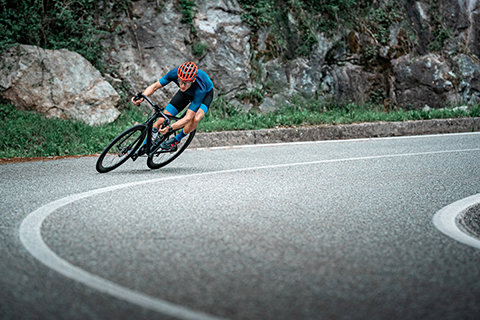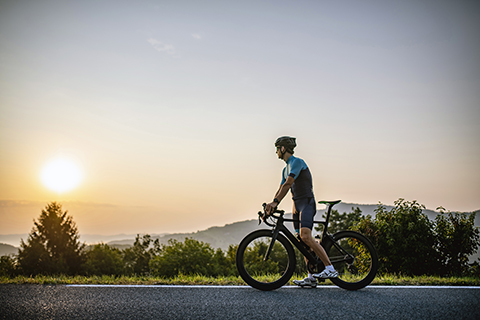The Tour de France has always been considered the pinnacle of cycling, as it requires exhaustive training and large amounts of energy and exercise.
It has traditionally been believed that only professional cyclists have the ability to compete in this event. However, a recent study published in the Journal of Applied Physiology challenges this assumption, suggesting that even amateur athletes have the potential to cope with the Tour de France. This groundbreaking research compares the performance and energy expenditure of recreational and professional cyclists, providing insight into the abilities of non-professional athletes participating in this iconic race.
What was the procedure of the study?
The study group consisted of a 58-year-old male recreational cyclist and a 27-year-old male World Tour professional cyclist. The researchers analyzed power data from the 2023 edition of the Tour de France, which covered a total distance of 3,405 km and included a significant cumulative elevation gain of 51,815 m.
Surprising findings of the study
Amazingly, the recreational cyclist completed the race in 191 hours, while the professional cyclist finished in only 87 hours. The average power generated by the recreational cyclist was 1.50 W/kg, compared to an impressive 3.45 W/kg for the professional cyclist. This indicates that the professional cyclist was able to maintain a higher level of intensity throughout the race.
In addition, the study revealed the energy expenditure of the athletes during the event. The recreational cyclist was estimated to have a total daily energy expenditure (TDEE) of 35.9 MJ, approximately 4.3 times his daily basal metabolic rate (BMR). In comparison, the professional cyclist had a slightly lower TDEE of 29.7 MJ, equivalent to approximately 3.8 times his BMR. Despite the high energy expenditure, both cyclists experienced minimal body weight loss, between 0-2 kg.

This study challenges the common perception that only professional cyclists are able to cope with the extreme physical demands of the Tour de France. The analysis indicates that even those who train recreationally can achieve similar or even higher levels of energy expenditure (four times their basal metabolic rate) compared to professional cyclists. This was made possible by the longer exercise time of the recreational cyclist, combined with a slightly lower relative intensity. These findings suggest that regular training and proper preparation can enable motivated individuals to participate in and successfully complete this iconic cycling event.
Continue your professional training
The world of sports performance is evolving rapidly, with new advances and technologies shaping the way athletes train and compete. Achieving optimal performance in sport requires a thorough understanding of various factors, including training methodologies, physical conditioning, among others. Finally, the Universidad Internacional Iberoamericana (International Iberoamerican University, UNIB), offers the Master in Physical Activity: Sports Training and Management.
Get ready to embark on an exciting journey that includes unparalleled professional growth and the realization of your full potential. Register now to take advantage of the opportunity that awaits you and make a lasting mark in the field of sports performance and athletic management.
Source: Physiology Journal: The Tour de France, also possible for mortals? A comparison of a recreational and a World Tour cyclist – Journal of Applied Physiology

